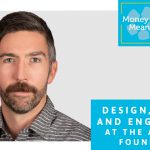What problem are you addressing? Why should people care?
My name is Myshkin Ingawale. I am a researcher and entrepreneur addressing the problem of undiagnosed anemia, which affects 2 billion people world-wide. The cure is known, the medicine is widely available but 1 million children and pregnant women die of this completely preventable condition because there is no affordable, point of care test available. Over the last 3 years, my team at Biosense has worked in India with public healthcare officials, hospital administrators and village health center nurses to develop “ToucHb”, a revolutionary non-invasive (prick free!), portable mobile-based diagnostic technology that will solve the problem. It contains a sensor and a mobile app that are used to measure blood hemoglobin without a prick and empower the health workers who can now administer the right medicine and monitor treatment at the point of care. This will save 1 million lives and improve productivity levels of many more who are screened and treated. I believe affordable, appropriate technology like this is needed to turn the present healthcare paradigm on its head and make medical technology accessible to everyone, regardless of economic status. I want to democratize healthcare. The present system confines the best technology to a privileged economic class. To break the barriers to access, I want to use low-cose mobile based technologies and innovative distribution and delivery models. The economics of the model would be driven by mass-scale, tiered value-based pricing pricing and its wide reach is the only way that impact can be achieved and health outcomes improved.
The ToucHb sensor consists of a probe – a paper clip-like element – that goes on the patient’s finger and uses an optical principle to measure blood hemoglobin through the finger nail, much like a pulse oximeter. A mobile app is used to view, log and integrate the data with an open electronic health record system. The system is operated by a semi-skilled health worker. I believe we can use similar appropriate technologies to address many more healthcare problems being faced by both the developing and the developed world, in a cost-effective way.
My name is Myshkin Ingawale. I am a researcher and entrepreneur addressing the problem of undiagnosed anemia, which affects 2 billion people world-wide. The cure is known, the medicine is widely available but 1 million children and pregnant women die of this completely preventable condition because there is no affordable, point of care test available. Over the last 3 years, my team at Biosense has worked in India with public healthcare officials, hospital administrators and village health center nurses to develop “ToucHb”, a revolutionary non-invasive (prick free!), portable mobile-based diagnostic technology that will solve the problem. It contains a sensor and a mobile app that are used to measure blood hemoglobin without a prick and empower the health workers who can now administer the right medicine and monitor treatment at the point of care. This will save 1 million lives and improve productivity levels of many more who are screened and treated. I believe affordable, appropriate technology like this is needed to turn the present healthcare paradigm on its head and make medical technology accessible to everyone, regardless of economic status. I want to democratize healthcare. The present system confines the best technology to a privileged economic class. To break the barriers to access, I want to use low-cose mobile based technologies and innovative distribution and delivery models. The economics of the model would be driven by mass-scale, tiered value-based pricing pricing and its wide reach is the only way that impact can be achieved and health outcomes improved.
The ToucHb sensor consists of a probe – a paper clip-like element – that goes on the patient’s finger and uses an optical principle to measure blood hemoglobin through the finger nail, much like a pulse oximeter. A mobile app is used to view, log and integrate the data with an open electronic health record system. The system is operated by a semi-skilled health worker. I believe we can use similar appropriate technologies to address many more healthcare problems being faced by both the developing and the developed world, in a cost-effective way.




